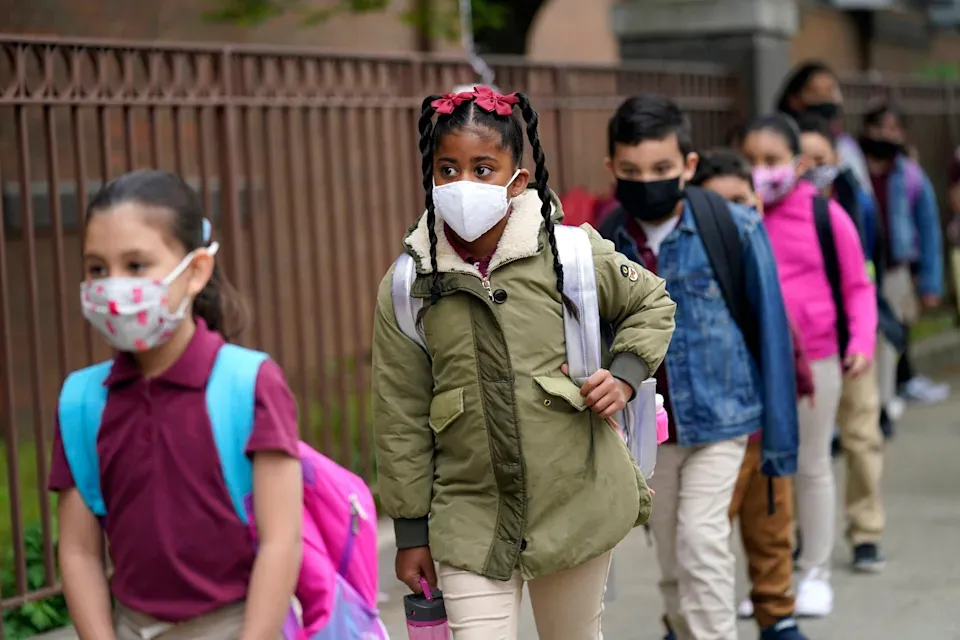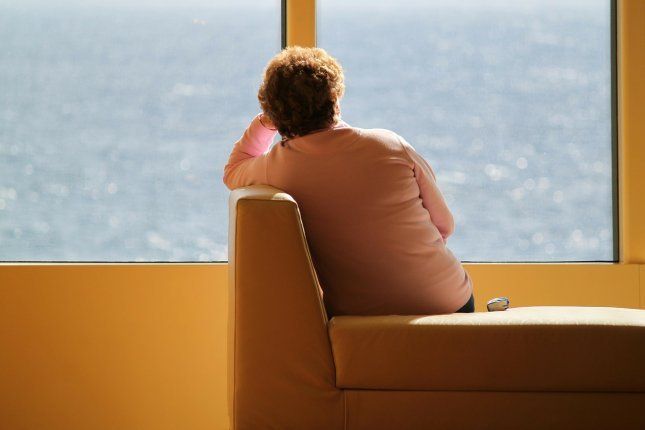The pandemic has taken a toll on children's mental health. An expert weighs in

(CNN)The Covid-19 pandemic has had a devastating impact around the world, causing millions of deaths and leading to many more people becoming severely ill and losing loved ones. It also has led to many mental health impacts, including on children and adolescents.
Examining the impact on children in 11 countries, a January study in the journal JAMA Pediatrics found that kids experienced increased anxiety, depression and other mental health impacts that are associated with school closures and lockdowns. Another study published in June by the US Centers for Disease Control and Prevention found that suicide attempts among adolescent girls have increased during the pandemic.
What are some signs that your child may need help? What should parents do to address the continuing impact on children's mental health? What about kids who are anxious about resuming pre-pandemic activities?
To help us with these questions, I spoke with CNN Medical Analyst Dr. Leana Wen, an emergency physician and professor of health policy and management at the George Washington University Milken Institute School of Public Health. She is also author of "Lifelines: A Doctor's Journey in the Fight for Public Health," and the mother of two young kids.
CNN: How can parents recognize signs that their children may need help?
Dr. Leana Wen: It depends on the age of your child. For younger children, signs of stress and mental health challenges could manifest as increased crying, more intense tantrums, difficulty falling or staying asleep, and increased anxiety when having to separate from caregivers.
Older children and adolescents may show signs like trouble with schoolwork, problems with memory or concentration, and changes in behavior like withdrawing from friendships. Look for changes that aren't usual for your child, like loss of interest in activities that they previously enjoyed and alterations in sleep or eating or exercise.
CNN: What should parents do if they notice these signs?
Wen: Depending on the age of your child, you may be able to have an open conversation about stress and how your child is doing. Listen to their concerns. Let them know that you are here to help them, that professional help exists, and that it's normal to need help. You may also want to share your own experience, too, and the impact that the pandemic has had on you. It could help you relate to your child and let them know that you are getting through this together. Open the door to another discussion and check in frequently if your child is not ready to have the conversation yet.
Parents should enlist the help of their child's pediatrician as soon as possible. Pediatricians can screen for depression, anxiety and other issues. One-on-one time for older kids with their pediatricians can also allow them to be more open and for your child's doctor to probe what their concerns are.
It's also important for parents to model self-care when it comes to mental health. Stress in other members of the family can be transferred to children. Be aware of your own mental health needs and prioritize your own emotional well-being, too.
CNN: Where can parents get help from specialists in mental health?
Wen: Your child's pediatrician will be the best source to go to, especially as they can offer recommendations on what kind of help is most appropriate. Some children may benefit most from a psychiatrist, whereas others could from a psychologist, therapist or mental health counselor. There may also be mental health support offered in your child's school.
I want to flag here that if you have any concern about suicide risk, you should seek help immediately. Do not delay. Call the National Suicide Prevention Lifeline at 1-800-273-TALK (800-273-8255). Make sure that all weapons, medications and other possible household hazards are safely locked away. Call 911 or go to your nearest emergency room that treats kids of your child's age if there is imminent danger.
CNN: What's your advice for parents whose children are upset because of continued isolation?
Wen: I'd first ask whether the continued pandemic measures are still necessary for your family at this time. A lot has changed since the pandemic first started. Everyone 5 and older is able to get vaccinated, which provides excellent protection against severe illness from Covid-19. Are you able to relax your precautions and allow your child to return to pre-pandemic activities?
Many families have kept their kids out of extracurricular activities. But now that Covid-19 levels have fallen after the rapid spike due to the Omicron variant, consider which activities you could restart. Could your child go back to indoor swimming or basketball, knowing that these activities aren't zero risk but that their risk of severe illness is very low? What about trying more outside activities?
For families that want to continue to be cautious to protect vulnerable members of their household, consider ways to reduce risk while still doing activities your children value. Could you allow your children to have sleepovers again, if everyone in the other household is vaccinated? Could you permit them to go to the movies, if they promise to keep on a high-quality mask the whole time? Or could they play with others outside?
CNN: What about the opposite -- what if kids are having anxiety because of restrictions like masks being removed?
Wen: Talk to your child about their actual risk, which is very low. A
recent study in the journal JAMA Pediatrics found that the rate of hospitalization among children from Covid-19 is comparable to the flu, and that was before vaccination. If your child continues to be very concerned, you could still have them mask, even if others around them are not. Ease into social and extracurricular activities. Don't start with the school dance with hundreds of people in a room, but rather with a playdate or birthday party with two or three good friends.
CNN: I'm so worried about long-haul Covid-19. Should I be?
Wen: There are studies that show Covid-19 can have long-term consequences. We don't know how common long-haul Covid is -- or how these long-term issues affect children. Different families will react differently to this uncertainty. Some will want to take additional precautions to try to avoid Covid-19 as much as possible. Others will value a return to pre-pandemic normalcy.
One important takeaway is that good health and well-being, both physical and mental, is not just defined as the absence of coronavirus. There are many other factors to be considered, too.
Orange County Psychiatric Associates, in Mission Viejo, works with adolescents, and adults to enable them to live their lives to their fullest. Orange Coast Psychiatric Associates tailors treatments based on the understanding that both body and mind must be treated in order to promote better mental and physical health. Let us help you improve your quality of life with specialized care for you.




